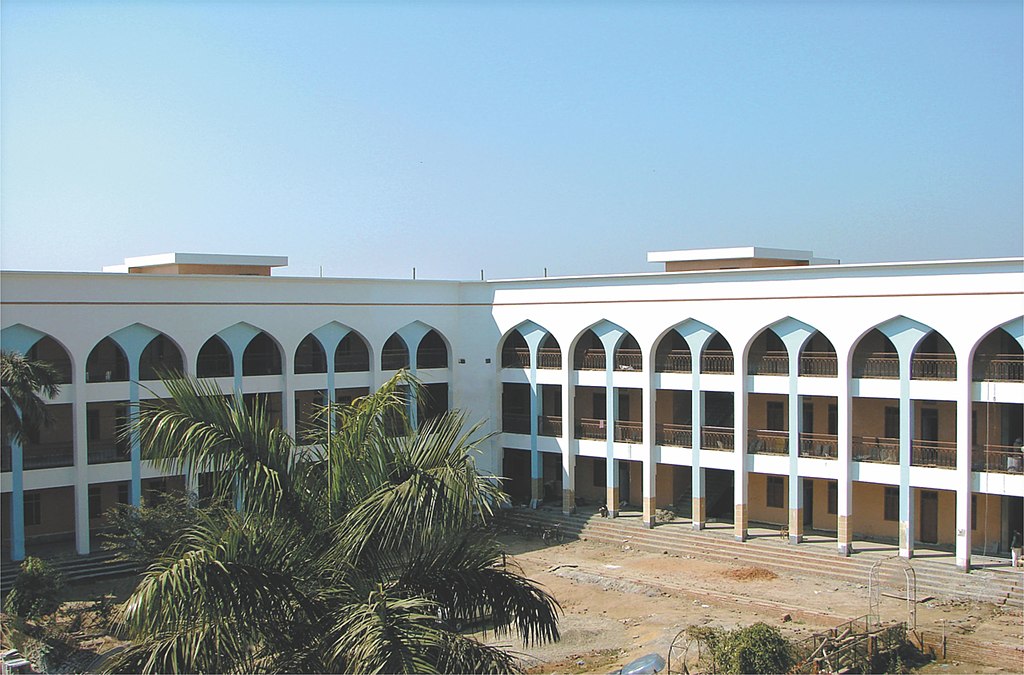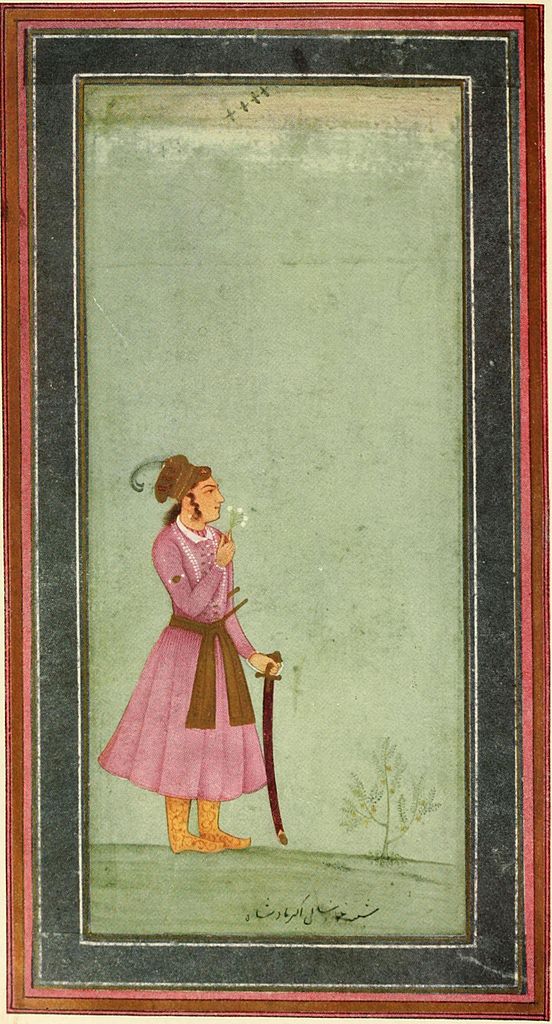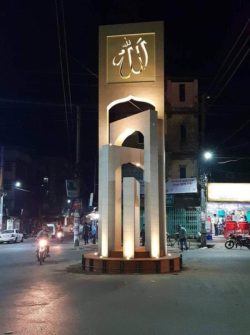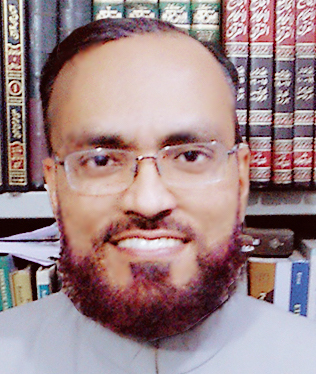
Translated by SherAli Tareen
See the original Urdu text here.
The Context of the Argument
The modern colonial era, marked by political and moral uncertainty, generated several new conundrums for South Asian Muslims, all centered on the following two critical questions: Who are we? What is our identity? These were questions of religious and cultural identity that became especially pressing with the fall of the Mughal empire and the ascendance of British colonialism. These new conditions reignited the debate over Muslim/non-Muslim relations and the boundaries of religious identity and difference, a debate that had remained on the back burner since the reign of the Mughal emperor Jalāl al-Dīn Akbar (d.1605). In addition, intra-Muslim contestations, which had simmered even in the precolonial period, congealed and metastasized in the colonial era. Some of these intra-Muslim contestations pivoted on the question of how one ought to align the normative imaginary and application of Muslim politics with the new conditions and requirements of the modern period. This is the intellectual and political context of the Deobandī-Barelvī polemic that is explored in SherAli Tareen’s book Defending Muḥammad in Modernity through the conceptual lens of the interaction between sovereignty, theology, morality, and ritual practice. More specifically, this book examines the encounters and relations between these rival groups of Muslim scholars and the ensuing formations of religious and moral identities among South Asian Muslims.
Throughout Muslim history, debates and contestations on religious identity have erupted in especially acute terms during moments of political decline and turmoil. A similar situation was seen in colonial South Asia. As prominent historian Francis Robinson has argued, there were two major factors that compelled South Asian Muslim scholars to debate the boundaries of their religious identity: (1) the activities and agility of Christian missionaries, and (2) the rise of Hindu revivalist movements. These developments, coupled with the antagonism of the British towards South Asian Muslims, gave rise to rival Muslim reform movements in the 19th century, the pioneers of the two most prominent of which, the Deobandīs and the Barelvīs, form the focus of Tareen’s study.
The centerpiece of this book, on which all its other discussions converge, focuses on the relationship between divine sovereignty, prophetic authority, and ritual practice as seen in the thought of prominent Muslim reformist scholars in 19th century South Asia. Their efforts to carve and refashion the religious identities of South Asian Muslims represented articulations of what Tareen calls “competing political theologies.” In other words, discourses on prophetic authority, morality, social order, normative laws, and ritual practice ultimately coalesced around the theme of political theology (See Part 1 of the book). According to Tareen, these seemingly theological discussions and debates were in fact interwoven with political currents and aspirations. Throughout the book, he interrogates the mutual imbrication and entanglement of theology and politics.

On this count, it is useful to note that for much of South Asian Muslim history, politics has dominated religion. What I mean by this is that theological interpretation often followed from political conditions. For instance, the stipulation of Quraysh lineage [prophetic lineage] as a precondition for the mantle of the caliphate, or for that matter the concept of united nationalism. These are two among many other examples whereby political conditions and exigencies informed the formulation of religious and theological ideas in the South Asian context. Despite pressure of the ‘ulamā’, successive Muslim political rulers in South Asia such as ‘Alāuddīn Khiljī (d. 1316) and Jalāl al-Dīn Akbar (d. 1605) resisted the dominance of religious concerns over political calculations and expediency. Aurangzeb ‘Ālamgīr (d. 1707) did depart from this tendency, which was one of the reasons for the decline of the Mughal empire. Yet, despite the inherently dominating nature of politics, religion and politics operated largely in cooperative harmony for most of Muslim history, with no obvious dichotomy or contradiction. The only exception to such concordance was seen either in the aftermath of the Mongol invasions in the 13th century [that saw the fall of Baghdad] or during the Western colonial invasions of the 17thand 18th centuries. Both these moments of political uncertainty generated for Muslim intellectual thought new vexing questions of faith, law, morality, tradition, and culture. Similarly, in the early 19th century context of colonial Muslim South Asia, the major question that came to occupy the center stage was this: With the erasure of Muslim political sovereignty, how is one to preserve and practically manifest [through ritual practice] divine sovereignty? Further, how should one approach the relationship between God, the Prophet, and the community during these new conditions of colonial modernity? And how can one protect Muslim culture and its markers of distinction in the era of colonialism?
Tareen’s book examines the epistemological and theological debates engendered by these questions, while offering new perspectives on, and theorizations of, those debates, establishing in turn their relevance and significance for the contemporary period. Tareen’s project is important because it offers a critical corrective to the general perception in South Asia that views the Barelvī-Deobandī polemic as an arcane fruitless intra-Muslim squabble belonging to a period of Muslim political and moral decline. Tareen is absolutely correct in claiming that this debate was not a superficial ideological dispute but rather the reflection of two competing rationalities [of tradition and reform] that have henceforth not received adequate attention in scholarship. He argues that the political transformation of colonial modernity in the 19th century inaugurated unprecedented transformations in Muslim intellectual thought that in turn have deeply imprinted the texture of Muslim religious identities in South Asia until today. The two key terms coined by Tareen in this regard, “competing political theologies” and “competing rationalities of tradition and reform,” are of crucial significance. These categories provide the conceptual bedrock for grasping the significance of the intra-Muslim debates that anchor the book. I find the framing Tareen suggests and advances at once novel and creative in the study of modern South Asian Islam. They pave the way for the formulation of new intellectual horizons and directions.
Tareen’s Contribution to the Field
The first two sections of the book traverse the early and late 19th centuries. In the first section titled “Competing Political Theologies,” Tareen engages a fierce polemic between the prominent scholars Shāh Muḥammad Ismāʿīl (d. 1831) and Fazl-ī Ḥaqq Khayrābādī (d.1861) that again highlights the enmeshment of theology and politics in debates on the status of divine sovereignty in modernity. These debates concerned problems like prophetic intercession, prophetic love, and God’s capacity to lie or produce another Muḥammad. On the other hand, the second section, “Competing Normativities,” addresses contestations on matters of ritual practice and theology, such as the Prophet’s birthday celebration and his knowledge of the unknown, as they took on a group-centered orientation in the late 19th century, and pitted the pioneers of the Deoband and Barelvī schools against one another. Collectively, these two sections enable the reader to appreciate the ideological foundations that not only divided these two groups of scholars, but also the normative underpinnings that brought them together. The third section “Intra-Deobandī Tensions” focuses on Ḥājī Imdādullah Muhājir Makkī’s (d. 1899) epistle Resolution to the Seven Controversies (Faysala-yi Haft Mas’ala) (335–75). Tareen shows that the contents of this epistle, through which Imdādullah sought to resolve the polemic between the Deobandī and non-Deobandī ‘ulamā’, who were followed by Aḥmad Razā Khān and his followers and were recognized later as Barelvī (until this time, the ‘ulamā’ who were opposed to the pioneers of the Deobandī school were not recognized as Barelvī) generated subtle but important divisions among the pioneers of Deoband themselves (to whom Imdādullah was their revered Sufi master). In a sense, Imdādullah demonstrated that the [epistemic] borders of the Deoband school touched the Barelvī school and vice versa, thus undermining the assumption of inherently oppositional identities. Both these movements, despite all their bitter disagreements, were steadfast followers of the same unquestionable legal tradition. And both believed in a common discursive foundation for how the relationship between individual experience and spirituality must unfold. Tareen’s book explicates this point very convincingly by critiquing the common tendency to approach the Barelvī-Deobandī polemic through the prism of the law-Sufism binary that is in turn a product of the good Muslim/bad Muslim binary, especially as seen in the popular works of think tanks and political institutions in the West.
Tareen questions this popular tendency by demonstrating that both these outfits were in fact standard bearers of religious reform. Where they differed was on what reform meant to them: for the Deobandīs, widespread ritual practices that were a product of the indigenous Indic milieu did not belong to the normative Islamic tradition, where, on the other hand, the Barelvīs approached Islamic normativity through a much broader canvass that allowed the continuity of such ritual practices concurrent with the work of religious reform. Moreover, while the Deobandīs advocated transformative reform eager to block any form of corruption from entering and thus polluting everyday life, the Barelvīs preferred selective reform over wholesale transformation. They specifically focused on the corruptions that had accrued on entrenched ritual practices rather than outlawing those practices altogether. Also, in the Barelvī worldview, the temporal reference of normativity was not restricted to any specific time period in history; each successive generation contributed to the formation and maintenance of communal norms in accordance with local habits and practices. But despite these subtle disagreements, the central objectives and societal role of these two schools mirror in a manner that frustrates any binary framings of their relationship or conflict.

Therefore, and this is a fascinating point, the third major Muslim reformist group in modern South Asia, the non-conformist Ahl-i Hadīth, considers the Barelvīs and Deobandīs as essentially the same. On the other hand, the Barelvīs consider the Deobandīs and Ahl-i Hadīth as extremist Wahhabis. Thus, Deoband serves as a bridge and conduit between the other two groups. On Deoband, Tareen makes an arresting point: namely that the Deoband movement at its core is marked by an amalgamation of diverse and often competing viewpoints, a feature that its opponents often cast as a sign of contradiction. In fact, it is this very quality of the Deoband school that has allowed it to adapt and respond to varied and shifting political conditions, even embracing at times the ideas of united nationalism and secularism. This Deobandī characteristic of intellectual flexibility and expansiveness is derived from and heir to the thought and legacy of the 18th century polymath Shāh Walīyullāh (d. 1762). Here I disagree with Tareen, who presents Deoband pioneers as the intellectual successors of Walīyullāh’s grandson Shāh Muḥammad Ismāʿīl, ignoring in the process major Deoband scholars like Anwar Shāh Kashmīrī (d. 1933) and Ḥusayn Aḥmad Madanī (d. 1957) who were in fact quite critical of Shāh Muḥammad Ismāʿīl. More accurately, the advancement of Ismāʿīl’s reform agenda hinged on reenergizing divine sovereignty constituted only one aspect of a much broader and multivalent Deobandī discursive terrain also populated by scholars with very different points of doctrinal emphasis, like prophetic love, etc.
Critiquing “Political Theology”
In sum, Defending Muhammad in Modernity has opened several new avenues of inquiry and presented fresh perspectives on the rationality of Muslim political theologies in South Asia. This is perhaps the first book to have shown and established the theoretical and political relevance and importance to the contemporary world of Muslim intellectual debates and discourses that are too often understood as inscrutable relics of a bygone past. But for all its merits, there are some shortcomings of this book that must also be highlighted. First, Tareen seems to present the intra-‘ulamā’ dispute over the theological questions of God’s capacity to lie or that God can produce a second instantiation of the Prophet Muḥammad as products of the modern South Asian context whereas these debates boast a much longer premodern genealogy, as seen for instance in the debates between the Ash‘arites and the Mu‘tazilis that do not receive much attention in this book. Moreover, the pivotal contribution of Deoband’s founder Qāsim Nānautvī (d.1877) to this twin debate, as found in his text Taḥzīr al-Nās, has also been ignored. Second, one of the leading assumptions of this book is that the Barelvī-Deobandī disagreement over the relationship between divine sovereignty, prophetic authority, and every day ritual practices was a product of and a reaction to the new conditions of colonialism. Tareen’s theoretical apparatus impinges on excavating the latent political imaginaries and logics that inform seemingly theological debates, what he calls political theology. But in so doing, he perhaps does not adequately engage the entanglement of religion and politics within Muslim thought and normativity. For instance, in classical Muslim thought, leading prayers (imāmat-i sughra) is considered a prelude to political leadership (imāmat-i kubra). Religion and politics are intimately conjoined. Now, I am critical of this view. Moreover, in the modern period, this classical worldview has also been forcefully challenged by Muslim scholars, one of whom is the Egyptian reformer ‘Alī ‘Abd al-Rāziq (d. 1966). But despite the transformations inaugurated by colonialism, the theoretical and ideological attraction of this conjoined view of religion and politics remained intact. The point I am getting at is this: why must we employ Western frameworks and categories of analysis like political theology to examine indigenous theological discourses and debates? For instance, yes, from the standpoint of the theory of political theology, Shāh Muḥammad Ismāʿīl’s critique of ritual practices as a way to restore divine sovereignty could be read as a response to the loss of Muslim political sovereignty in modern South Asia. Or Fazl-ī Ḥaqq Khayrābādī considering the possibility of another Prophet Muḥammad unfathomable could be interpreted as a defense of the Prophet’s political authority. But this theoretical framework will not find much acceptance among the traditionalist Muslim intellectual circles of South Asia for it will be seen as imposing political meanings and aspirations onto explicitly theological debates. In other words, the conclusions that Tareen draws from his reading of these intra-Muslim debates are a product of the theoretical framework that he deploys to study them. But what if these debates were considered on their own terms apart from analytical frameworks wedded to Western academia? Perhaps such an exercise might generate competing and contrasting conclusions.


Conciliatory gestures or reconciling oppositional identities are in my estimation the biggest challenge confronting the intra-sectarian divide. Tareen’s groundbreaking work also reflects on the hedging element of both groups: how far do they go in selectively adapting doctrinal positions and ritual practices as expressions of Indo-Islamic culture. Regardless of the binaries that impinge on our understanding of Islamic authenticity, Tareen’s work points out to the flawed representation of the complexity of these movements.